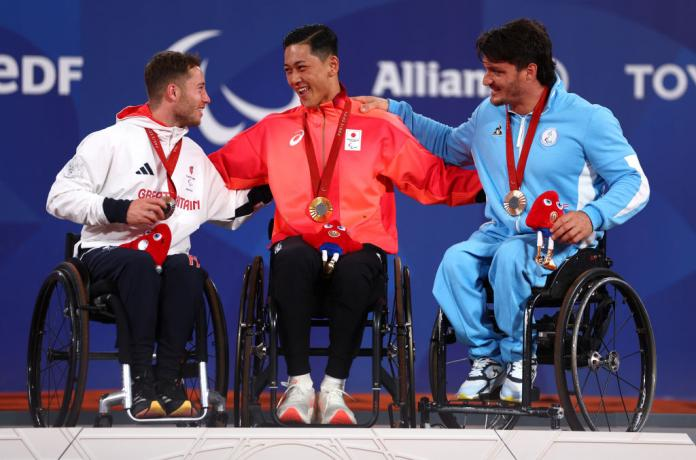
In an unforgettable showdown at the Paris 2024 Paralympic Games, 18-year-old Tokito Oda of Japan defeated world number one Alfie Hewett from Great Britain in a dramatic three-set final to claim the men’s singles wheelchair tennis gold. Oda’s 6-2, 4-6, 7-5 victory not only secured his first Paralympic title but also cemented his status as the youngest ever Paralympic champion in the sport.
The match, played on the iconic clay courts of Roland Garros, was filled with intense rallies and emotional highs. Hewett, seeking to complete a career ‘Golden Slam’ in singles, had a golden opportunity when he earned a match point at 5-3 in the final set. However, a critical miss on a drop shot opened the door for Oda, who seized the moment and won the next four games to take the title.
Hewett, visibly disappointed, acknowledged the weight of the moment. “To be just one point away from gold and let it slip—it’s something that will stay with me,” he said. Despite the heartbreak, Hewett praised the quality of the match and expressed pride in his effort to battle back after a tough start. He also lauded Oda for his resilience and skill.
Oda, who has been heralded as the successor to Japanese wheelchair tennis legend Shingo Kunieda, celebrated with exuberance, removing the wheels from his chair and lying back on the court in disbelief. The two competitors shared a heartfelt embrace at the net, drawing a long ovation from the crowd.
For Oda, this victory was the culmination of years of hard work and inspiration. Diagnosed with bone cancer at nine, Oda turned to wheelchair tennis after watching Kunieda at the London 2012 Paralympics. Now, standing atop the podium with his childhood idols, Oda reflected on his journey: “I was born for this moment.”
The final also saw history made by Argentina’s Gustavo Fernandez, who won bronze, becoming South America’s first Paralympic medalist in wheelchair tennis with a commanding 6-1, 6-2 win over Spain’s Martin de la Puente.
This Paralympic final will be remembered not only for the remarkable athleticism on display but also for the sportsmanship and mutual respect that defined it, marking a historic chapter in wheelchair tennis.






Be First to Comment